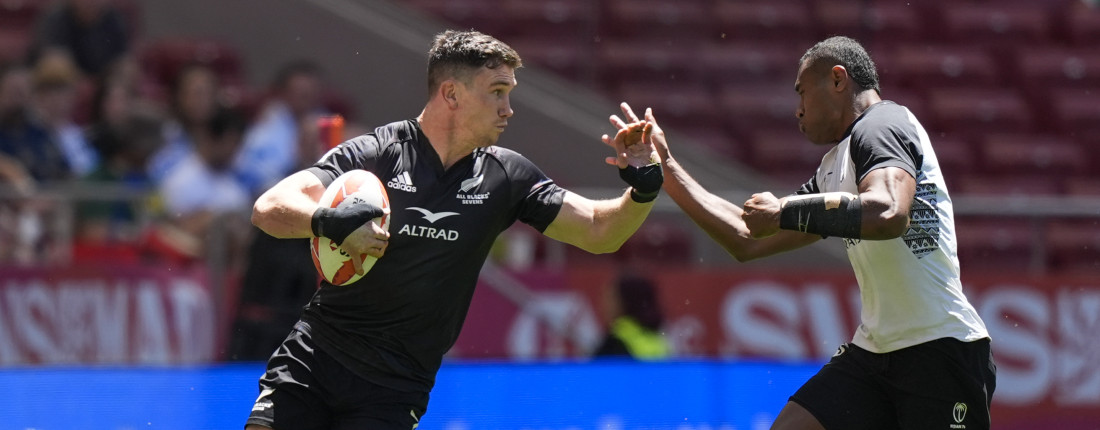
The golden trio played through a highly competitive era of Sevens, winning World Cups, Olympic silver medals, and Commonwealth Games gold medals, and their departure, along with other squad members Moses Leo, Payton Spencer, Leroy Carter, Che Clark, Tepaea Cook-Savage and Fehi Fineanganofo, will see a change come over the New Zealand side.
But Dickson told World Rugby, "There's still a group of 10 or 12 boys who are really experienced but still at the top of their game. It's almost a perfect storm for Tomasi [Cama] to rebuild with a decent amount of experience to help these fresh teenagers coming through."
With Regan Ware, Amanaki Nicole and Aquila Rokolisoa unavailable for Dubai, it's in at the deep end for New Zealand's squad.
Dickson said 18-year-old Oli Mathis, a Hamilton Boys' High School product, is one player with an exciting future.
"He played New Zealand Schools at seven [openside flanker], but when it came to NPC for Waikato they had so many injuries he ended up on the wing. So, he's a flanker that's so fast and elusive he can play wing at the top level. I can already see him running in tries at Dubai."
Joe Taumateine is another who will have an impact.
"He's an absolute beast, a power athlete playing prop. I'm so looking forward to seeing him hanging out wide on the second phase in space, running down the wing, or over people, it'll be cool to watch."
Dickson said the growth in the HSBC series meant the competition was fiercer than ever.
"For the first four years of my career, we'd have one pool game every event where we'd put 40-50 points on a team, but now it's so rare.
"Canada [relegate last year] was a great example. Even though they were at the bottom of the rankings, they pushed us so hard each time, and now there are only 12 teams. It makes it so much harder.
"Uganda and Kenya are back this year, so I can't see it getting any easier.
"The physicality and breakdown has gone through the roof. Players weren't necessarily technically proficient in terms of body positioning and jackalling back in the day, but now, every player on the field is a threat.
"Aerially players are so good now too. Taking the ball high above your head used to be a rarity, but now there's three or four players in each team that specialise."
Fitness has also advanced.
"That was our point of difference, especially when we were playing 10-minute halves in the finals. 'Titch' [coach Sir Gordon Tietjens] drilled us into the ground, but since it became an Olympic sport, teams have caught up on the professionalism around conditioning, and the mindset."
Dickson may not be lost to Sevens; he has coaching aspirations in the sport.